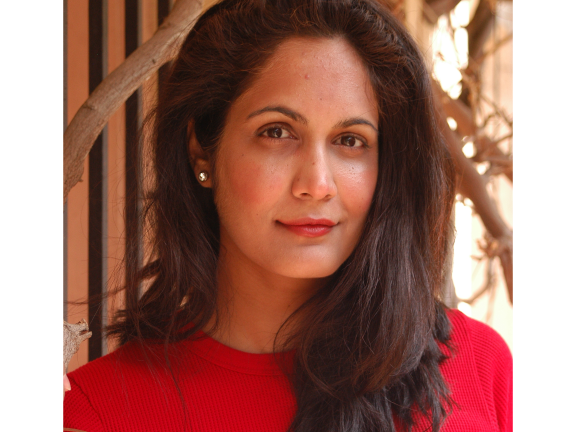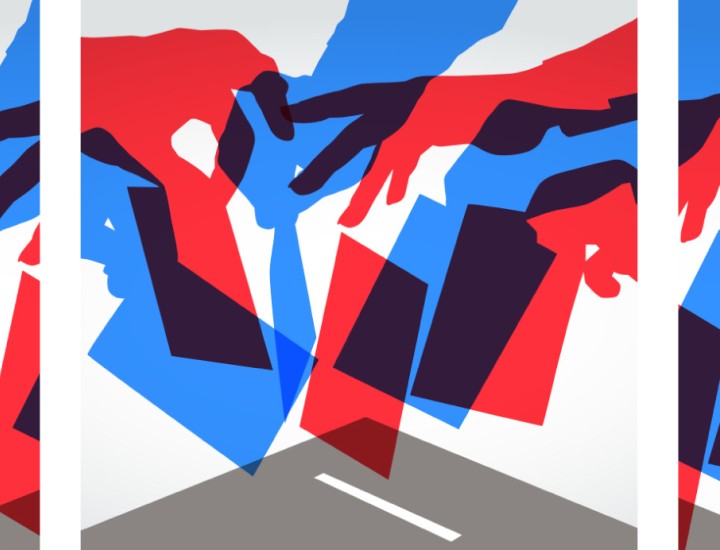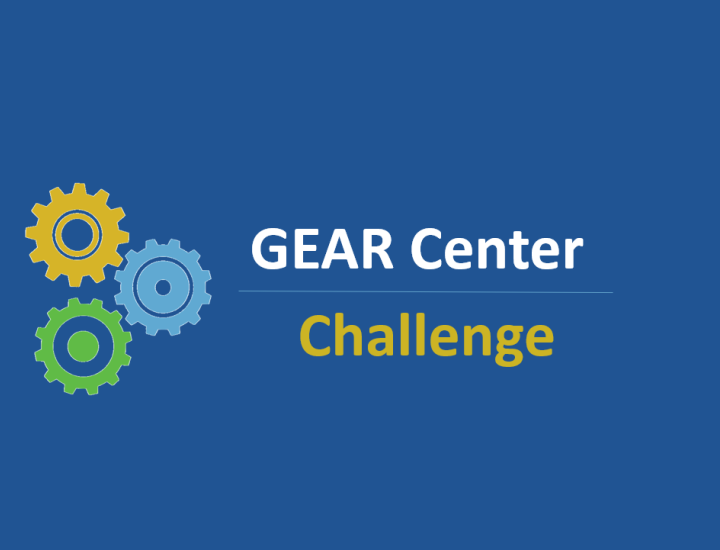Volcker Alliance Spotlight: Sarayu Srinivasan on the Presidential Innovation Fellows Program

Sarayu Srinivasan is a White House Presidential Innovation Fellow (PIF) and Senior Advisor detailed to the United States Office of Management and Budget (OMB). At OMB, Sarayu is helping to establish the Government Effectiveness Advanced Research (GEAR) Center, a public-private partnership which will convene experts and practices across sectors and disciplines to take a creative, data-driven, interdisciplinary approach to solving some of the toughest challenges facing government.
Sarayu began her Fellowship as a detailee to the National Institute of Standards and Technology (NIST) where she worked on the cross-agency priority (CAP) goal Lab-to-Market, focused on helping accelerate federally funded science, technology, and innovation to market through better engagement with venture capital and the private sector.
The White House Presidential Innovation Fellows program was established by the White House in 2012 to attract top innovators and private sector talent into government, to help tackle critical issues at the convergence of technology, policy, and process.
Prior to serving as a PIF, Sarayu had an extensive career in the private sector as an investor, founder, and operator where she supported the establishment and growth of companies in the consumer and technology sectors. After completing her MBA and further graduate studies, Sarayu joined PepsiCo as a brand manager. She then worked in senior operating roles at several successful startups before beginning her investment career as a venture partner. Sarayu eventually joined Intel Capital and helped deploy Intel’s first $250M emerging markets fund in India, where her investments include the second largest B2B marketplace in the world. When Sarayu returned home to the United States, she founded KAARGO, a consumer-to-consumer transport and shipping marketplace.
In this Volcker Alliance Spotlight, Sarayu shares her perspective on government innovation and emphasizes the power of public-private collaborations.
- What is a Presidential Innovation Fellow, and what have you been working on during your fellowship?
The White House Presidential Innovation Fellows is a vehicle for bringing private sector expertise into the federal government to work on solving some of our nation’s toughest challenges. PIFs are designers, engineers, operators, strategists, investors, marketers, and technologists. There’s a great diversity in experience, age, and background. PIF details are generally for a year, but Fellows often end up serving longer, and some even eventually transition into full-time roles in government.
My first detail at the National Institute of Standards and Technology (NIST) was for the Lab-to-Market initiative, a cross-agency priority goal. At NIST, I advised government leadership on how to accelerate federally funded innovation to the market through better engagement with venture capital and industry. I worked on creating a more entrepreneurial mindset across our agencies, national laboratories, federal innovation groups, and technology transfer offices to help support and demystify the path to market. I engaged with venture capitalists and industry to better educate fellow investors on the role federal innovation plays in our industry (it underlies nearly everything we invest in!), encourage tighter alignment, and help create paths to better engagement.
- What motivated you to transition from a career in the private sector to the federal government?
It was simple: I joined PIF to serve—and to serve where I felt I could add value by leveraging my specific experience as an investor and operator. As a Fellow, my goal is to make a positive impact on the agencies I work with by helping them move forward in their missions. In the case of my last detail, I knew very little beforehand about NIST or the Lab-to-Market initiative, but I sensed the opportunity to work on something meaningful and interesting—something where I felt I could make a difference.
I will also share that I am a native Washingtonian, and that my late Father worked at the Nuclear Regulatory Commission, so this was a small way to walk in his footsteps. Moving to DC from NYC felt like coming full circle in some ways.
- In your experience, what are some of the differences between working with the public and private sector?
I actually see many similarities between the public and private sectors—more than one might think. For example, there is a notion that government is very hierarchical and siloed, but in my experience, the private sector can also exhibit those characteristics.
Another example is the general tendency to attribute innovation almost solely to the private sector. From my specific experience here, the federal government actually provides the basis for a great deal of foundational innovation. Many of the greatest inventions of our time, including microwaves, solar panels, MRIs, and the Internet sprang from federal innovation. The government has the unique ability to fund, support, and experiment over long periods of time, laying the foundation for our national security base, robust economy, and unparalleled innovation ecosystem.
One of the biggest differences between the public and for-profit sector is speed. When profit is the primary motive, divergent views tend to align and operations can mobilize quickly to meet the goal. Companies racing to chase opportunities can reposition resources, rescale, or downsize in the blink of an eye. Government, however, has a mandate to work for and benefit all citizens indiscriminately. Everything is in service of the common good, and government acts as a steward. Further, everyone is a stakeholder in government work—this is actually a defining characteristic. All these factors contribute to government operating much more tentatively and slowly than the private sector.
- How can public-private partnerships improve how governments respond to citizens’ needs?
There are many models of successful public-private partnerships. While unfortunate, the current COVID pandemic has highlighted powerful public-private collaborations. For example, Google and Apple are jointly providing contact tracing software for developers and public health agencies to track potential virus exposure across communities. US Digital Response, a volunteer effort comprised of technology practitioners, is partnering with public health departments to log available hospital beds, ventilators, and other personal protective equipment (PPE). Project N95, a nonprofit founded in response to the pandemic, is partnering with healthcare providers, medical equipment suppliers, and local governments across the country to act as a clearinghouse for PPE. The list goes on.
- What is something that has surprised you about working for the government?
Throughout my time in government, I have worked with amazingly dedicated, hardworking, knowledgeable colleagues. I’ve encountered these qualities across government, between agencies, within our extraordinary national laboratories, amongst our fellow employees, and throughout our talented support staff. Many of these incredible feds persevere in support of the mission without guarantee of recognition, success, or reward. It has inspired me, and touched me deeply, more than once. Take even the current COVID crisis: government as an entity has reorganized to focus on meeting the unprecedented challenges of this pandemic. Ex-feds are emerging from retirement to support efforts, leadership is focused on rethinking how the work of government and serving citizens continues, and Fellows, including in my own PIF program, are spending significant time outside of their professional responsibilities on COVID efforts. The tireless dedication is inspiring and infectious.
- Who would you encourage to explore PIF opportunities?
A misconception about government employment is that it is best suited for those with policy or law backgrounds or ambitions. In reality, government needs talent from across all disciplines and industries, and this is becoming increasingly the case. Whether you are a data scientist, engineer, general manager, or investor, there is a need for you. If your interests or skillset can be leveraged to enhance mission delivery, improve citizen services, and better the stewardship of public resources, then there is a need for you. If using innovation to help solve some of our country’s most complex and pressing challenges interests you, then I would encourage you to consider the White House Presidential Innovation Fellows program—there is a need for you!


